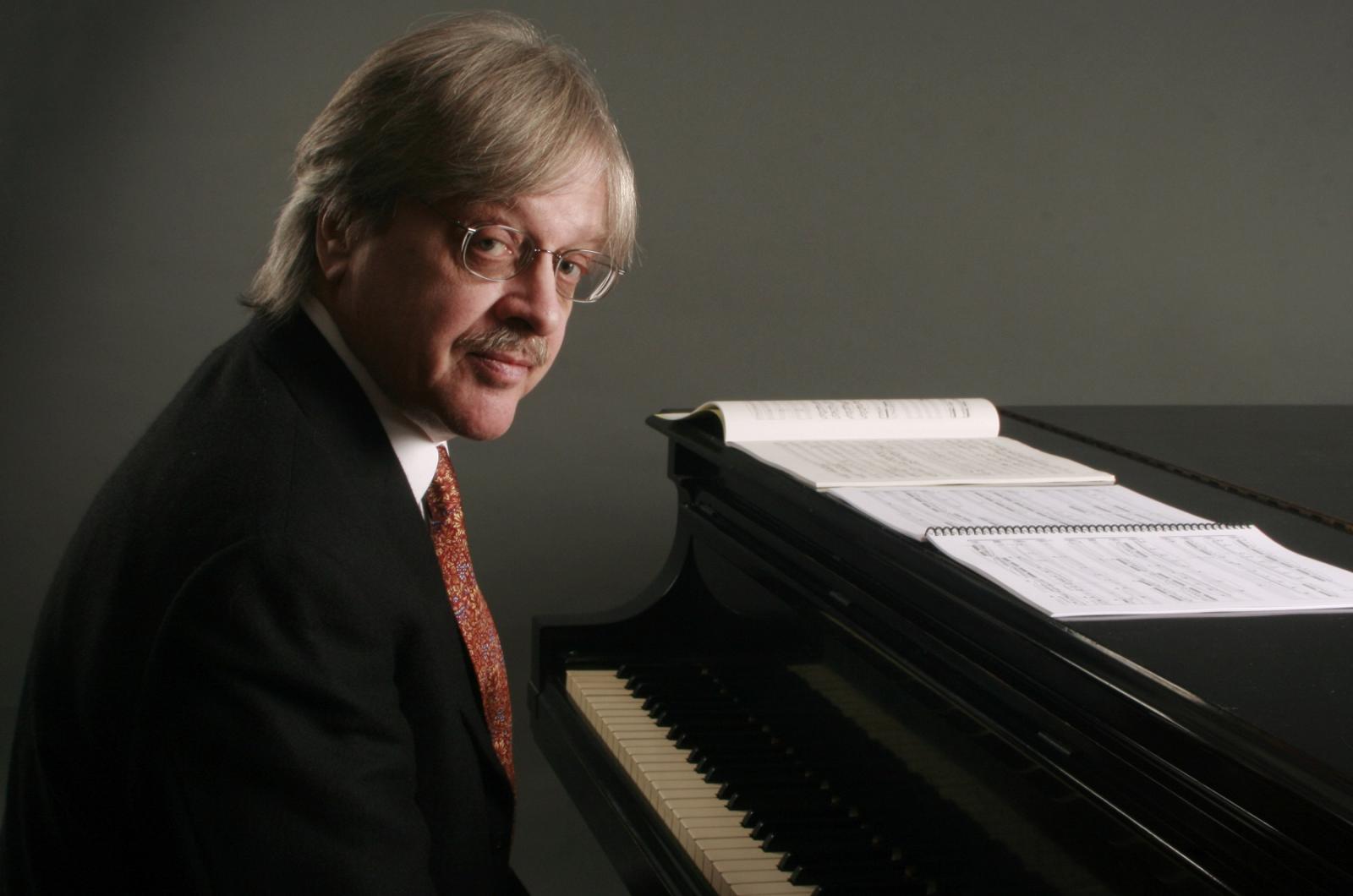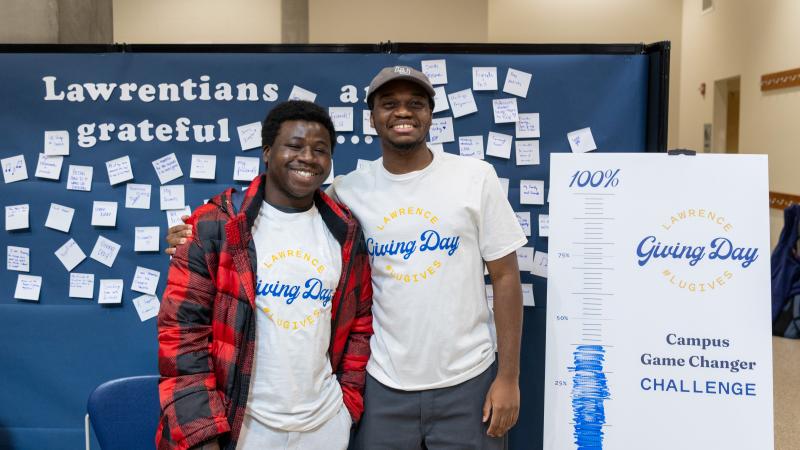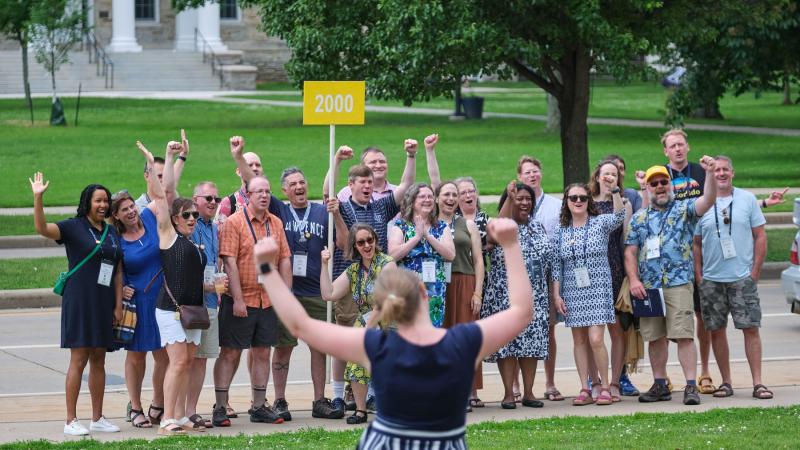The number of truly transformative figures in music theory over the past several decades can be counted on one hand—and only one of them is also a three-time Pulitzer Prize-nominated composer: Fred Lerdahl ’65.
Now professor emeritus at Columbia University, the Lawrence University alumnus progressed through the echelons of musical prestige with a career grounded in both imagination and intellect. His career pairs an acclaimed compositional output with seminal contributions to the cognitive foundations of music theory.
Among the most accomplished graduates in the 150-year history of Lawrence’s Conservatory of Music, Lerdahl has been widely honored for his work as a composer—two awards from the American Academy and Institute of Arts and Letters, the Naumburg and Martha Baird Rockefeller Recording awards, and a Guggenheim Fellowship. In 1999, he received the honorary degree Doctor of Fine Arts from Lawrence. Three years earlier, the Lawrence University Alumni Association honored him with its 1996 Lucia R. Briggs Distinguished Achievement Award.
Integrate intellectual and musical virtuosity in a supportive community that will empower you to find your musical path.
Before the major awards, the influential publications, and the Columbia tenure, Lerdahl began his musical journey in the Conservatory that is now celebrating a century and a half of brilliance.
Raised in Madison, Wisconsin, Lerdahl played both piano and oboe throughout high school. Though academically inclined, he came to music relatively late and felt compelled to catch up. That urgency led him to seek out conservatory training to deeply foster his skills.
“I realized I needed to completely immerse myself in music,” he said. “I was already pretty well read and good at school—Lawrence sounded ideal because it had strong academics alongside a school of music.”
The decision proved pivotal. Surrounded by musicians for the first time, Lerdahl found the intensity and totality of musical study exhilarating.
“It was just an absolute thrill to actually be studying music all day, every day,” he said. “I took all the required courses and enjoyed those too, but there was great excitement about studying music.”
Lerdahl quickly distinguished himself, testing into advanced placement for theory, beginning piano studies with Clyde Duncan and, most crucially, starting private composition lessons with James Ming.
“[Professor Ming] wanted to make me into a well-rounded musician,” Lerdahl explained. “He not only insisted I become a decent pianist, but had me study conducting, viola, French horn, and continue on oboe. He made sure I took two years of counterpoint—I’d say that was all excellent training.”
Ming was honored by Lawrence in 1982 after nearly four decades of teaching composition and music theory. He himself was taught by the esteemed pedagogue Nadia Boulanger, as well as luminaries like Darius Milhaud and Howard Hanson.
“Ming would periodically go back to Fontainebleau, Paris, to study further with Boulanger—he was very much a Francophile, so he demanded good craftsmanship, and he was very practical ... he was a very fine musician and a very cultured one, and so those qualities were important in what I learned.”
Lerdahl recalled that among the joys of his undergraduate experience was the vibrant diversity of disciplines that surrounded him. He took philosophy and history courses, developed friendships with poets and non-musicians, and found another important mentor in William Chaney, the renowned historian.
Though widely known for his contributions to music theory, Lerdahl’s theoretical work didn’t emerge until later—driven not by academic ambition but by compositional necessity.
Following Lawrence, Lerdahl underwent graduate study at Princeton. There he studied with the celebrated composer-theorist Milton Babbitt, known for his strict and systematic serialism in music composition.
“Babbitt was a positive and negative model at the same time,” Lerdahl said. “He was a model in his deeply thoughtful approach to music, but I couldn’t swallow the [serialist] system he built.”
Babbitt’s hyper-complex music, in Lerdahl’s view, exceeded the cognitive capacities of listeners. This aesthetic crisis pushed Lerdahl to seek a new theoretical foundation—one rooted in how people actually perceive and process music.
“I conceived of music theory as a branch of cognitive science,” he said. “Once I got into that, it became a real interest in its own right. But it always fed my composing: everything I did theoretically resurfaced in my music, and my needs as a composer often suggested what to do in theory.”
The most famous result of this approach is his Generative Theory of Tonal Music, co-authored with linguist Ray Jackendoff. Inspired by Noam Chomsky’s linguistics, the theory held that humans fundamentally respond to tonal music through intuitive and hierarchical structures—much like language. The model remains one of the most influential frameworks in the field.
“I think the field of music theory suffers from a lot of theorists who aren’t practicing musicians,” Lerdahl said. “It shows up in all kinds of ways, in various kinds of theories and the way they talk about it, the way they talk about music. So, I'm very much a believer in craftsmanship, practical skills.”
That practical grounding, Lerdahl said, traces directly back to his time at Lawrence.
“One of the great things about being at Lawrence was that I either conducted or played piano in everything I wrote,” he said. “In my senior year, I even conducted the orchestra in one of my own pieces, and my senior recital was half conducting, half piano playing. That kind of experience was invaluable—especially for someone like me, who hadn’t grown up studying music from an early age with the best teachers.”
While Lawrence provided this intensive musical training, it also aided Lerdahl in developing his broader interests.
“There was a general intellectual climate that was stimulating to me, even outside of music,” he said. “In that sense I grew not just as a musician, but as a thinker.”



